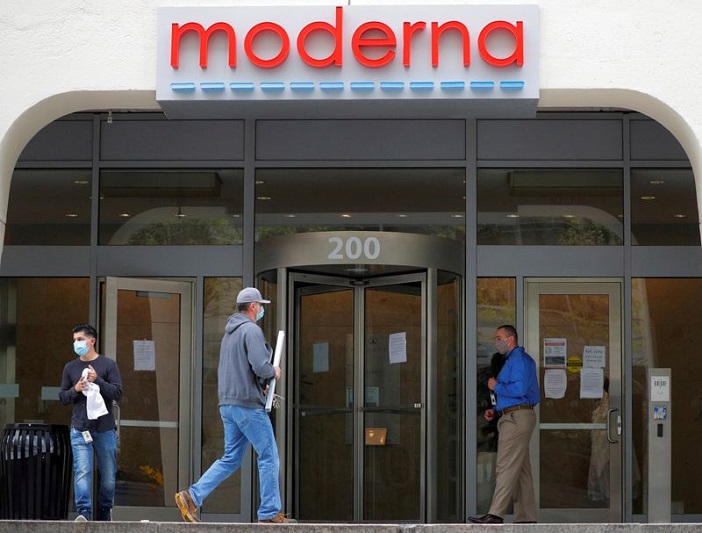Investing.com -- Shares in Moderna (NASDAQ:MRNA) edged lower in premarket US trading on Friday, pointing to an extension in deep losses posted in the prior session, as analysts slashed their rating of the drugmaker after it delayed its profitability target.
On Thursday, Moderna's stock price plunged close to a four-year low after the company said it now expects to have $6 billion in operating cash to break even by 2028, two years later than its original target.
Moderna said it also now expects to deliver 2025 revenue of $2.5 billion to $3.5 billion, missing Wall Street estimates of $3.74 billion, according to LSEG cited by Reuters. At the midpoint, the outlook was also below its 2024 sales projection of $3 billion to $3.5 billion.
Analysts at Jefferies, in a note to clients slashing their rating of Moderna to "Hold" from "Buy," said they see a risk that the group may need to "raise capital in order to achieve the new guidance."
The announcement comes at a time when the company has been struggling to reinvigorate performance following a post-pandemic downturn in demand for COVID-19 vaccines. It warned that the timeline for regulatory approval of its flu and cancer vaccines would be later than it had initially projected.
Moderna also revealed that it plans to reduce its research and development expenses by approximately $1.1 billion from 2026, lowering expected costs from $4.8 billion this year to between $3.6 billion and $3.8 billion by 2027. It explained that the decision is part of its broader strategy to prioritize its existing product pipeline and focus on commercial growth.
"[W]e welcome this expense discipline even if it wasn’t sufficient to keep the prior breakeven guidance intact," analysts at JPMorgan Chase (NYSE:JPM) said in a note. However, they lowered their rating to "Underweight" from "Neutral," citing worries that it will be "challenging for [Moderna's] stock to perform apace" with its peers.
In an interview with Reuters, Chief Financial Officer James Mock flagged that each of the 10 new products it expects to be approved by 2027 will only start to generate meaningful revenue after they are given the green light by regulators.
